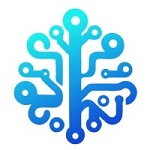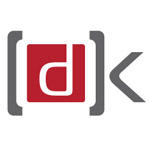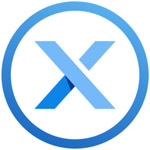DePIN
What is DePIN
Blockchain technology is moving beyond the virtual space. The DePIN concept is responsible for bringing decentralized projects from online to the real world. It includes projects that create a direct connection to the real world through special infrastructures made of physical devices.
DePINs are Decentralized Physical Infrastructure Networks. The term refers to a scheme for application integration of blockchain into physical infrastructure.
How does DePIN work
Blockchain solutions are used to manage systems like sensors, network devices, physical storage, wireless infrastructure, energy, and many other things that can be used to achieve common goals. This concept model enables an autonomous, fully transparent and secure database.
Smart contracts are usually responsible for automating such systems. This is a digital analog of conventional contracts, in which it is possible to prescribe the terms of its implementation.
It turns out that blockchain technology can play the role of a crystal-clear administrator, who is able to automate the work of the system, control every step, and instantly provide reports with all the evidence. At the same time, he does not need to be paid. The ideas about creating such projects formed the basis of DePIN.
There are two types of DePINs:
- Physical Resource Networks (PRN). Complex systems comprising physical objects, devices, infrastructure and resources that interact with each other to achieve specific goals. PRNs are closely related to the concepts of the Internet of Things (IoT) and digital transformation, where objects and devices interact with each other and with people through communication and data exchange networks.
- Digital Resource Networks (DRN). Here, digital resources, data and information interact with each other and are processed to ensure optimal management and utilization of information assets. DRNs play an important role in today’s information society, where data is becoming the main resource for decision-making, innovation and business development.
DePIN is sometimes described through Proof of Physical Work. This refers to a situation where a blockchain protocol rewards users for performing physical work that is provable and evaluated.
Key advantages of DePINs
Horizontal scalability
A network can simultaneously include a huge number of participants (so large that it can compete with large centralized projects), and blockchain allows for efficient and mutually beneficial cooperation.
Decentralization
In the crypto world, decentralization is recognized as an unquestionable good. Here, the absence of a center allows a well-organized network to remain flexible and not have the growth ceiling that centralized projects may have.
Cost-effectiveness
The costs of a network using blockchain should be lower than centralized solutions. Moreover, such networks are highly attractive to new entrants because they offer a clear process for entry and revenue generation.
Pricing
Compared to centralized solutions, DePINs have lower costs and therefore can offer competitive pricing to consumers.
Assurance
DePIN projects, by virtue of the fact that they use real equipment to perform useful tasks, can boast that their capitalization and price are to some extent secured by the equipment and the work it performs.
Also, DePIN is trying on a long-proven system of rewards for work done in the cryptocurrency world – to incentivize participation in physical infrastructure networks. Participants receive project tokens (or, theoretically, other cryptocurrency) for their active contribution to the project. Therefore, DePIN projects usually have their own cryptocurrency.
Examples of DePIN projects
To illustrate, here are a number of examples of human activities where DePIN projects have already found their application:
Power Ledger
A peer-to-peer platform for energy trading. The aim is to decentralize the energy network. Participants find each other to realize the surplus of real electricity they receive.
HealthBlocks
Rewards users for providing health-related data, helping medical companies and doctors in private practice. Users can connect their fitness devices (e.g., smart bands) to the app to collect data and track fitness goals. Users are rewarded with HEALTH tokens for completing quests or submitting data.
NuNet
Artificial intelligence-based computing marketplace. The goal is to efficiently utilize idle computing resources.
DIMO
Digital Infrastructure for Moving Objects, a platform that allows vehicle owners to monetize data and telemetry collected from their vehicles’ sensors.
Filecoin
Decentralized file storage providers where users share their computer’s available disk space with others who need secure and decentralized storage.
Conclusion
The emergence of DePIN as a category describing the applied use of blockchain for the sake of implementing large decentralized infrastructure projects means global changes for the crypto community. This is confirmed by the number of already existing DePIN projects. DePIN has a serious chance to become a separate sector of the crypto economy.

















































